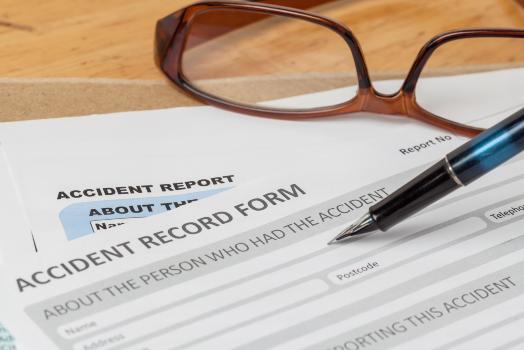Supplemental Accident Benefit Coverage in Ontario, Canada
Understanding Supplemental Accident Benefit Coverage in Ontario, Canada
With the number of cars on the road, there is a high probability that you or someone you know will be in a car accident. If this happens to you and it is not your fault, then filing no fault accident benefit claims can help with the costs associated with the damage to your vehicle and any injuries you may have sustained.
In Ontario, the supplemental accident benefits coverage is part of the standard auto insurance policy. Suppose you are in a car accident, regardless of who is at fault. In that case, your insurance company will cover a portion of your medical and rehabilitation expenses and some of your lost income.
To make a no fault car accident claim, you will need to contact your insurance company and provide them with all the necessary information about the accident, including police reports and medical documentation. Upon filing your claim, an adjuster will review it and decide what amount you are entitled to receive.
If you are not satisfied with the decision made by your insurance company, you have the right to appeal. The first step in the appeals process is to request a review by the Financial Services Commission of Ontario (FSCO). If you are still not satisfied with the outcome, you can file a notice of objection with the Licence Appeal Tribunal (LAT).
No-fault car accident benefit claims can be complex, so it is essential to seek professional help if you have been involved in an accident. a personal injury lawyer will be able to guide you through the process and ensure that you receive the maximum amount of benefits.



No-Fault Supplemental Accident Benefit in Ontario, Canada
What Is a No-Fault Supplemental Accident Benefit in Ontario, Canada
The No-Fault Supplemental Accident Benefit (SAB) is a no-fault automobile insurance coverage that benefits the insured person and their family members, regardless of who was at fault for the accident. Persons eligible for the benefit should have been involved in an accident for which they received medical treatment. The coverage is broader for both the person and their family members than other automobile insurance coverage, such as Med Pay or PIP. It protects a broader range of benefit types.
The No-Fault Supplemental Accident Benefit is optional insurance coverage in Ontario and is not required by law. However, it is highly recommended by the Insurance Bureau of Canada (IBC) for all drivers to have this coverage. If you are involved in an accident, this benefit will pay for a portion of your lost wages and your medical and rehabilitation expenses. It will also provide death benefits to your spouse or children if you are killed in an accident. Unless you have this insurance, you may be responsible for paying all of these expenses yourself.
The No-Fault Supplemental Accident Benefit is just one part of a comprehensive automobile insurance policy. To get complete protection, you should also have liability coverage, uninsured motorist coverage, and collision or comprehensive coverage. Contact your insurance company or broker to learn more about the different types of automobile insurance coverage available.



No-Fault Benefits and They Cover in Ontario, Canada
What Are No-Fault Benefits and What Do They Cover in Ontario, Canada
Ontario has recently introduced a new law that will establish no fault benefits for the province. These benefits are similar to workers’ compensation but cover more than workplace injuries. This includes coverage for injuries sustained while commuting to work, commuting home from work, or performing regular duties. No-fault benefits also cover medical expenses and lost income following an injury.
The new no fault benefits system will provide coverage regardless of who is at fault for the accident. Even if you are found to be at fault, you will still be able to receive these benefits. This is designed to help protect workers from being left without any financial support following an injury.
No fault benefits are not intended to replace existing coverage but rather to supplement it. This means that if you already have private health insurance or another form of coverage, you will still be able to receive these benefits. If you do not have any other form of coverage, you may consider purchasing a health insurance policy to cover a portion of your medical expenses.
No-fault benefits are payable regardless of whether you were injured on the job or not. So, if you were injured while commuting to work, you would still be able to receive these benefits. If you were injured while performing your regular duties, you would also be eligible for these benefits.
It is necessary to report your injury as soon as possible to receive no-fault benefits. You will then need to provide them with a detailed description of the accident and your injuries. Once your employer has all of the necessary information, they will decide whether or not you are eligible for these benefits.
If you are found to be eligible, you will be able to receive a lump-sum payment for your medical expenses and lost wages. Most of these benefits are paid out over time rather than all at once, so you do not have to worry about how you will pay for treatment as it comes due.
It is essential to remember that no-fault benefits are not intended to replace your regular income. They are meant to help you cover the costs of your medical expenses and lost wages following an injury. If you are unable to work, you may still be able to receive these benefits.
If you have been injured in an accident, it is vital to contact an experienced personal injury lawyer as soon as possible. An experienced lawyer can help you understand the no fault benefits system and determine if you are eligible for these benefits. They can also help you file the necessary paperwork to receive these benefits and make sure you are compensated appropriately.



Accident Benefit Claims & Principal Dependency in Ontario, Canada
Understanding Accident Benefit Claims & Principal Dependency in Ontario, Canada
The accident benefit claims are an essential part of the insurance process. These claims can help a person recoup some of the costs associated with their injuries and property damage that they might have incurred during a collision. The principal dependency in Ontario is a dependency status that allows people to receive benefits from their dependent children. Usually, a person must have been injured in a car accident and cannot work because of their injuries.
The following benefits are available under the accident benefit claims program: medical and rehabilitation benefits and income replacement benefits. Medical and rehabilitation benefits can help cover the costs of necessary medical treatment and rehabilitation services. Income replacement benefits can help replace a portion of a person’s lost wages if they cannot work because of their injuries.
For accident benefit claims, a person has to be injured in a car accident in Ontario. The police must be notified of the accident within 24 hours and file an insurance claimwithin seven days. People who cannot work for some time due to their injuries are eligible for income replacement benefits. The amount of time that a person must be off work will depend on the severity of their injuries.
The following points should be considered when filing accident benefit claims:
- It is essential to gather all necessary documentation, such as police reports and medical records.
- It is important to file the claim as soon as possible after the accident.
- It is important to keep track of all expenses related to the accident, such as medical bills and lost wages.
Contact a personal injury lawyer if you have been injured in a car accident and are unsure what to do next. The assistance of an injury lawyer can help you understand your rights and options under the accident benefit claims program and help you obtain the compensation you deserve.



Car Accident Benefits for Personal Injury Victims in Ontario, Canada
Determining The Car Accident Benefits for Personal Injury Victims in Ontario, Canada
Car accidents are one of the most common types of injury that people suffer. The Ontario government has created legislation to ensure that victims have a fair chance of recovering from their injuries. This guide will outline the different car accident benefits for personal injury victims in Ontario and explain how they can help you during your recovery.
The first benefit you may be eligible for is the Ontario Disability Support Program (ODSP). This program assists people who are unable to work due to injuries. The amount of money you receive from the ODSP will depend on your family’s income and your level of disability.
If you require medical or rehabilitation services, you may be covered by the Ontario Health Insurance Plan (OHIP). OHIP covers various services such as hospital stays, doctors’ visits, and prescription medication. However, it does not cover all treatments, so you may have to pay for some of your care.
You can also receive coverage through your workplace insurance plan. These benefits can help you cover the cost of lost wages and other expenses related to your injuries.
If you are not eligible for any of the above benefits, you may still have a right to file a lawsuit for damages. The injury lawyer can help you determine if you have a case and what type of compensation may be available to you after a car accident.
Speak to a personal injury lawyer today to learn more about car accident benefits and your legal options.



Catastrophic Accident Benefits in Ontario, Canada
A Brief Guide to Understanding Catastrophic Accident Benefits in Ontario, Canada
Every Canadian deserves a fair and decent standard of living should they face a catastrophic accident. If you’re in Ontario, you can apply for catastrophic accident benefits. The following guide offers an overview of these benefits, how to apply for them, and the process of getting compensation if you’re successful.
- What are Catastrophic Accident Benefits?
Catastrophic accident benefits are designed to help people who have been seriously injured in an accident. The benefits can help with medical treatment and rehabilitation, income replacement, and other expenses. They can also provide financial assistance for family members who need to care for the injured person.To be eligible for catastrophic accident benefits, you must have been seriously injured in an accident that happened in Ontario. The accident also needs to have occurred within Ontario at the accident. - How to Apply for Catastrophic Accident Benefits
- If you think you might be eligible for catastrophic accident benefits, you should contact an insurance company as soon as possible. You’ll need to fill out an application form and send it to the Financial Services Commission of Ontario (FSCO).
- The Process of Getting Compensation
If your application is approved, you’ll be able to start receiving benefits right away. The amount of money you’ll receive will depend on your injuries and how much money you need to cover your expenses.If you’re not happy with the decision made about your benefits, you can appeal the decision. You have up to one year from the date of the decision to file an appeal.
Catastrophic accident benefits can help you cover the costs of medical treatment and rehabilitation, income replacement, and other expenses if you’ve been seriously injured in an accident. If you think you might be eligible, contact an insurance company as soon as possible to apply.
Nobody wants an accident, but you should know your options if it happens. This guide has provided an overview of the car accident benefits available in Ontario. If you think you might be eligible for these benefits, contact an insurance company as soon as possible. The process of getting compensation can be complicated, so it’s best to speak with a personal injury lawyer about your specific case.
*The laws pertaining to automotive injuries are complex and are constantly evolving. The information on this website was not written by legal professionals and should not be considered legal advise. Please contact a professional personal injury lawyer serving Ontario for the most up to date and accurate information.






